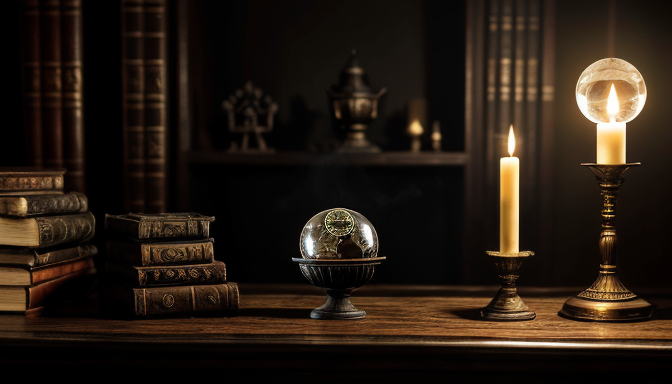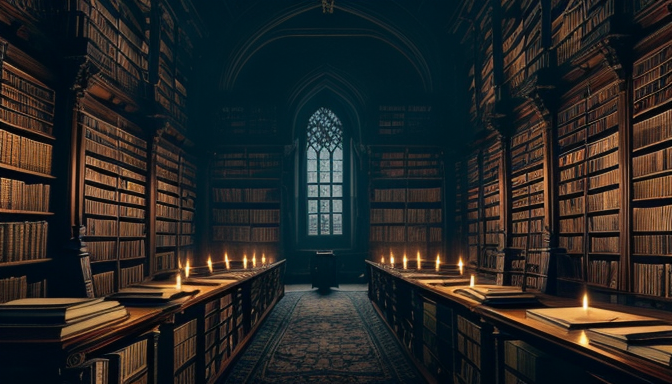Magic has always been a tantalizing concept, captivating our imaginations and drawing us into worlds where the impossible becomes possible. But have you ever paused to consider the hidden dangers that lurk within this enchanting realm? From ancient folklore to modern fantasy, the allure of magic often comes with a price. In fictional settings, magic systems can be broadly classified into two categories: soft magic and hard magic. Each type holds its own unique characteristics and implications for those who dare to engage with it.
Soft magic systems, often found in epic tales, focus on the mystery and wonder of magic. They leave much to the imagination, creating a sense of awe without strict rules. Think of the magical realms in J.R.R. Tolkien’s works, where spells are more about the atmosphere than the mechanics. On the other hand, hard magic systems, like those in Brandon Sanderson’s novels, are governed by well-defined rules and limitations. Here, magic can be a tool, but it can also become a double-edged sword, leading users to a path of obsession and unintended consequences.
As we delve deeper into the arcane traditions that shape these magical practices, we must ask ourselves: is the pursuit of magic worth the potential fallout? The psychological impact of engaging with dark arts can be profound, often leading to a spiral of fear or obsession. Just like a moth drawn to a flame, many find themselves enchanted, only to discover that the light can also burn. In the end, magic may be a beautiful illusion, but it is essential to tread carefully, for the allure of the dark side can be dangerously seductive.
Historical Perspectives on Dark Magic
Throughout history, the concept of dark magic has captivated and terrified societies, often walking a fine line between fascination and fear. In ancient civilizations, magic was not merely a tool; it was a cultural phenomenon that shaped beliefs and practices. From the Egyptians who revered their magicians as intermediaries with the gods to the medieval Europeans who feared witchcraft as a pact with the devil, the perception of magic has evolved dramatically.
In many cultures, dark magic was seen as a way to harness supernatural forces for personal gain or revenge. For instance, during the Renaissance, the rise of alchemy intertwined with dark arts, leading to a complex relationship between science and the occult. This era birthed numerous texts that classified spells and magical practices, often blurring the lines between fiction and reality.
To better understand these historical perspectives, we can categorize magical practices into two main systems:
| Magic Type | Description |
|---|---|
| Soft Magic | Magic that is mysterious and often undefined, allowing for creativity in storytelling. |
| Hard Magic | Magic with strict rules and limitations, often used to create tension and conflict. |
These classifications help us appreciate how different cultures viewed the nature of magic. The arcane traditions they developed often reflected societal values and fears, making the study of dark magic not just an exploration of the supernatural, but also a mirror to the human psyche. So, when we ponder the allure of dark magic today, we must remember its rich, complex history and the cautionary tales it carries.

The Psychological Impact of Engaging with Dark Arts
Engaging with dark arts can be akin to opening a Pandora’s box of emotions and thoughts. Once you step into the realm of the supernatural, it’s not just about casting spells or invoking spirits; it’s about diving deep into the unknown. The allure of dark magic often draws individuals in with promises of power, control, and the ability to manipulate reality. However, this journey can lead to significant psychological effects that are often overlooked.
When individuals immerse themselves in dark arts, they may experience a range of emotional responses, including:
- Obsession: The desire to learn more can become all-consuming, leading to neglect of daily responsibilities and relationships.
- Fear: The fear of the unknown can manifest, causing anxiety and paranoia about the consequences of their practices.
- Isolation: Engaging with dark magic can create a rift between practitioners and their loved ones, as friends and family may not understand their fascination.
Moreover, the psychological toll of dabbling in dark arts can lead to a distorted perception of reality. Practitioners may begin to see the world through a lens of magic, where every event is interpreted as a sign or omen. This can create a feedback loop where their beliefs become more entrenched, leading to further isolation and obsession.
In essence, while the dark arts may offer a thrilling escape from reality, the psychological ramifications can be profound and life-altering. It’s crucial to approach such practices with caution and awareness of the potential mental and emotional consequences. As the saying goes, “With great power comes great responsibility,” and this holds especially true in the world of magic.
Frequently Asked Questions
- What is dark magic?
Dark magic refers to supernatural practices that are often associated with malevolent intentions. It encompasses rituals, spells, and beliefs aimed at manipulating forces for personal gain or causing harm to others. Think of it as the shadowy side of magic that can lead to unforeseen consequences.
- Is engaging in dark magic dangerous?
Absolutely! Engaging in dark magic can have serious repercussions, both psychologically and spiritually. Many practitioners report feelings of obsession, fear, or even paranoia after dabbling in these practices. It’s like opening a door to a world that might be better left closed.
- Can dark magic affect my mental health?
Yes, the psychological impact can be profound. Many individuals experience anxiety, depression, or a sense of loss of control after becoming involved with dark arts. It’s crucial to recognize the potential emotional toll before venturing down this path.
- How has society historically viewed dark magic?
Historically, societies have often condemned dark magic, associating it with witchcraft and evil practices. This stigma can lead to fear and misunderstanding, shaping contemporary beliefs about magic and its dangers. It’s a fascinating yet cautionary tale!

Recent Comments